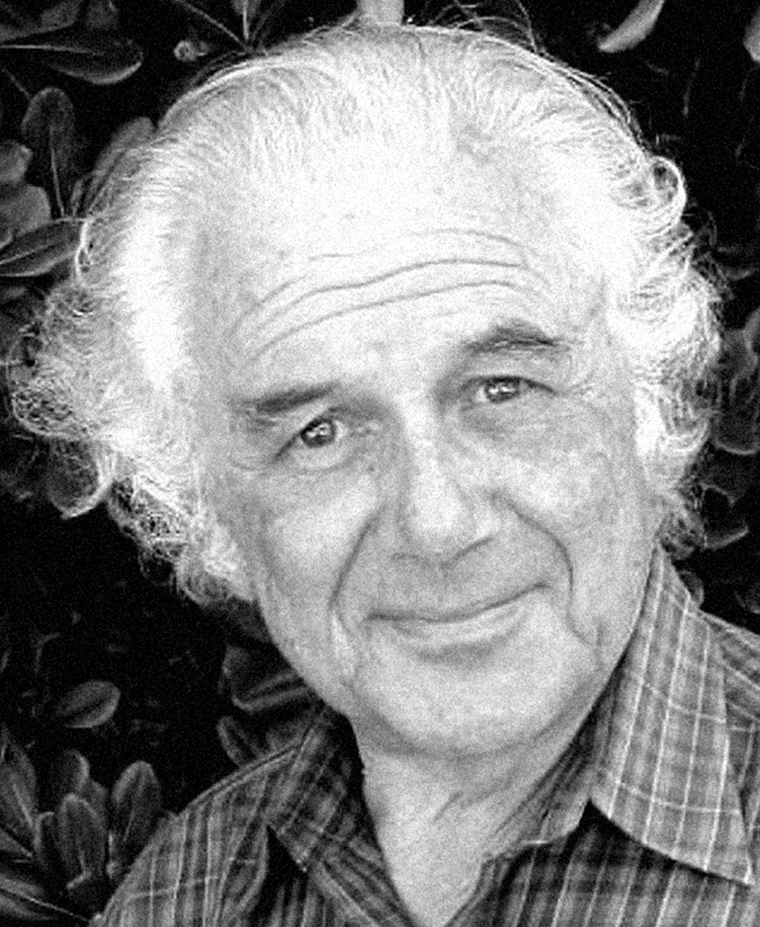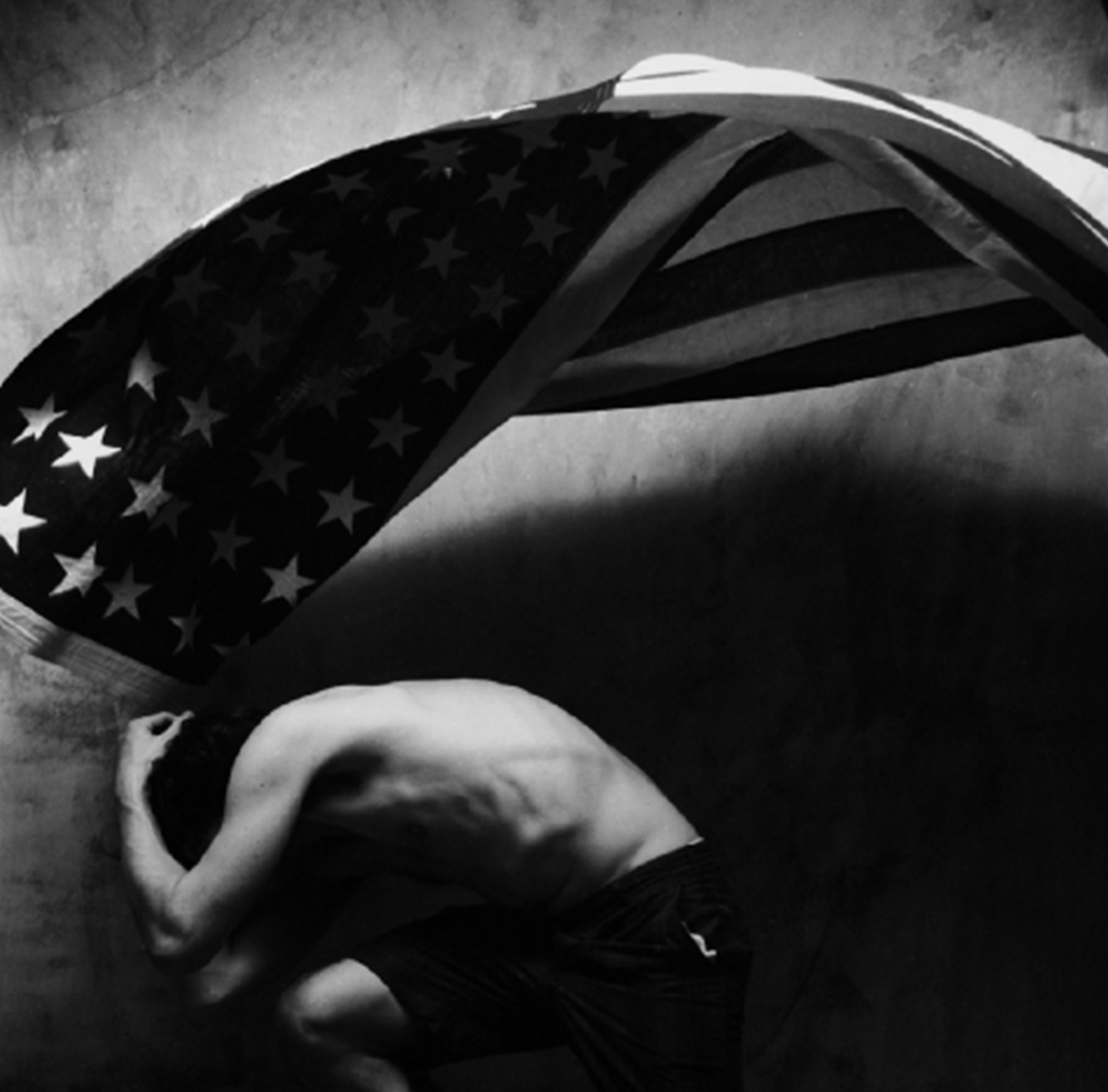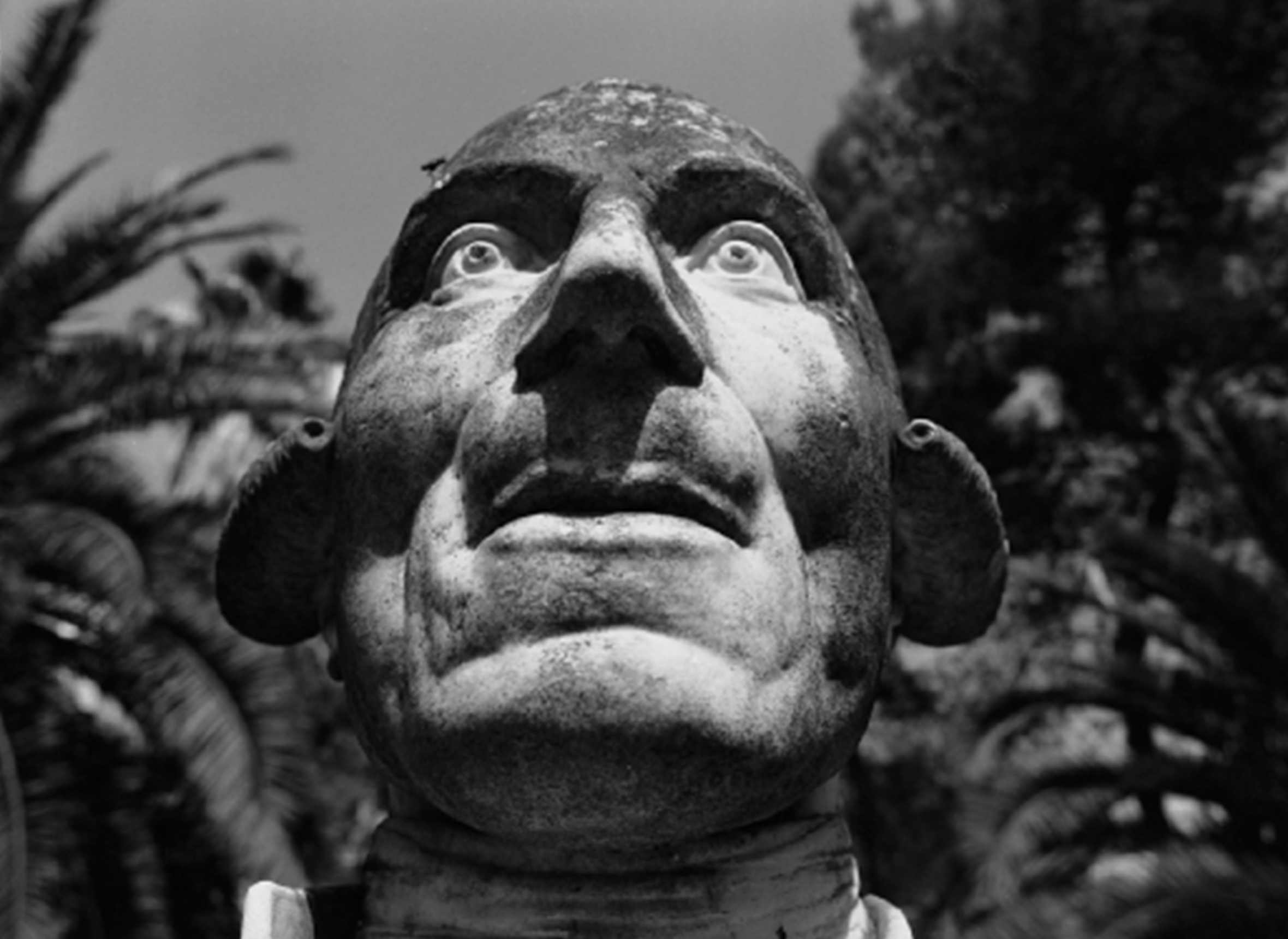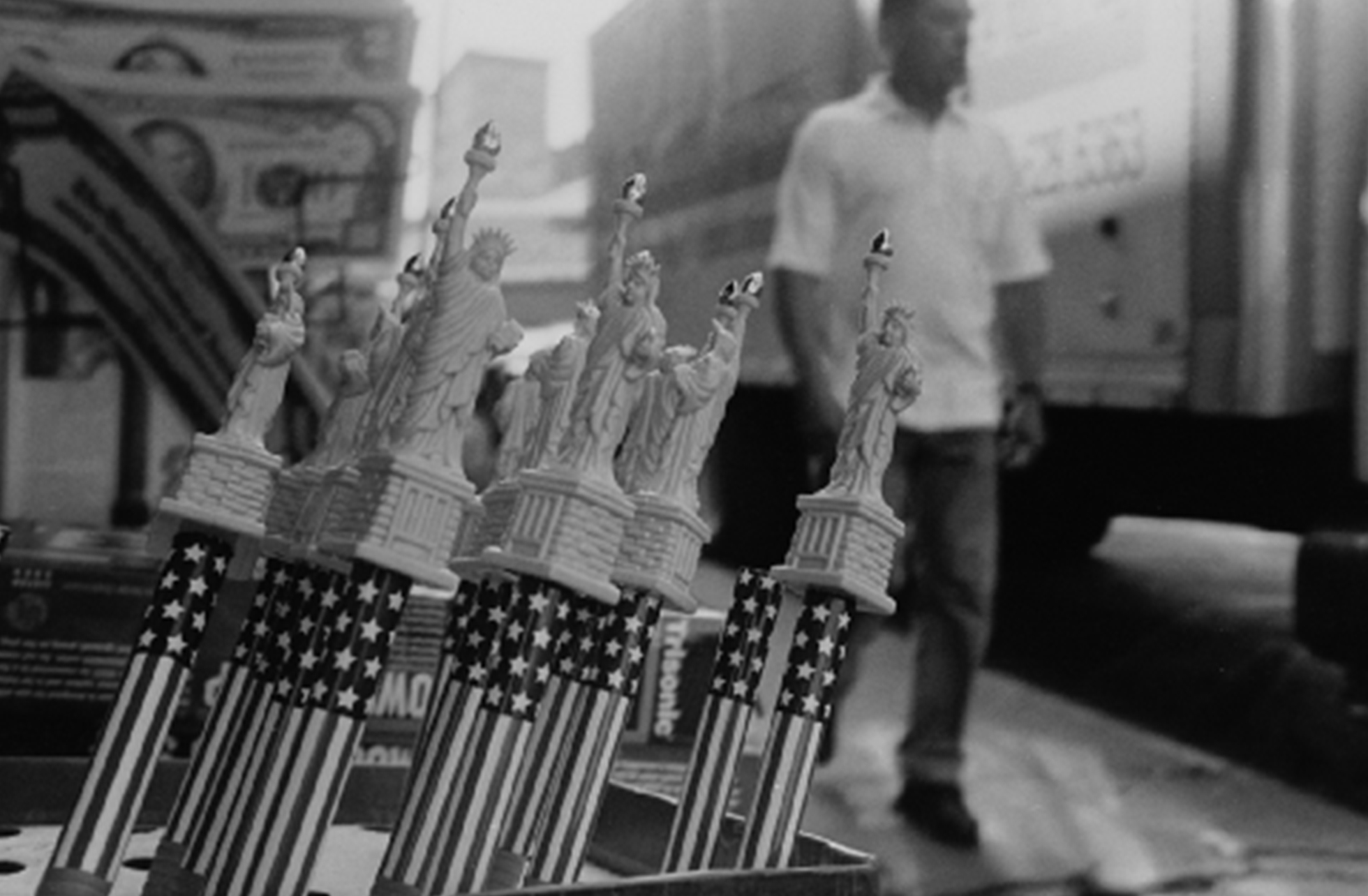Several months after the fall of the World Trade Center, President George W. Bush held a press conference at which he was asked by a reporter how the immense tragedy had changed him personally. The Chief Executive hesitated briefly before answering, “Ask my wife. . . . I don’t spend much time looking in the mirror.”
In his response, our nation’s leader revealed much about the contemporary American character: We are a people of action who don’t spend much time reflecting on our actions, our motives, or ourselves. We simply presume that we’re good folks who have everyone’s best interest at heart — and then proceed to persuade, cajole, and intimidate the rest of the world’s peoples to accept our well-intentioned actions, whether they like them or not.
But when those immense towers crashed to earth with such a stunning loss of life, our still-young nation’s forward momentum seemed to come to a halt. Suddenly we realized that we would “never be the same” and that the time may have come to start taking stock of our lives in a new way. Even Larry King said so.
If philosopher Jacob Needleman is right, America was always meant to be a place where deep reflection and assessment of one’s values, motives, and potential could flourish. In his latest book, The American Soul: Rediscovering the Wisdom of the Founders (Tarcher), Needleman writes that “America was once the hope of the world,” and not just because it symbolized political liberty and freedom from want. “The deeper hope of America was its vision of what humanity is and can become.” He uses the writings and speeches of such icons as Washington, Franklin, Jefferson, and Lincoln to delineate his transformative vision of America.
But Needleman gives equal time in his book to what he calls “the crimes of America” — namely, our early legacy of slavery and the genocide of the Native American people. “To a great extent, the material success of America rests on these crimes and others like them,” he says. But he urges his readers to take stock of America’s virtues and failures in a way that might yield more telling sentiments than pride on the one hand or guilt on the other.
“The great wisdom,” he writes, “whispers to us from ancient times of another kind of confrontation with what is good and what is evil in ourselves; another kind of hope, compared to which that which we call optimism is dangerously naive and childish; and another kind of remorse, compared to which that which we call guilt is impotent and self-deceitful.”
The self-confrontation Needleman suggests is the kind of inner work that eventually yields more than just a new opinion of ourselves. It is the work that slowly but surely yields a new self entirely. Perhaps by such a process America itself might eventually achieve the potential that our Founding Fathers glimpsed. But the process will be tremendously more difficult than simply asking our spouses how we’re doing.
Jacob Needleman has been provoking readers to look at their lives in a new way throughout his long career, which has produced such landmark books as Lost Christianity (Element Books Ltd.), The Heart of Philosophy (HarperSanFrancisco), and Money and the Meaning of Life (Currency/Doubleday). Born in Philadelphia, he went to Harvard with the intention of becoming a doctor, but got sidetracked by a fascination with deep philosophical questions. He ended up with a Ph.D. — from Yale — in philosophy, and has taught philosophy at San Francisco State University for the last forty years. Instead of instructing his students in dry academic argument, Needleman focuses on the sort of “why are we here?” inquiries that most professors tend to avoid because the questions have spiritual ramifications.
In our first conversation, published in The Sun more than twelve years ago, Needleman and I discussed the pros and cons of the popular mysticism that was then sweeping through American culture. Recently we sat down again to discuss American culture and whether it will achieve the potential its Founders had in mind.
JACOB NEEDLEMAN
Miller: In your new book you argue that the Founding Fathers intentionally created a constitutional framework that would allow the inner life of the citizenry to flourish. How do you know whether they really meant for Americans to develop their inner lives?
Needleman: I can’t say what actually went on in their minds, but when I look at their writings, I do see signs of the spiritual quest. The spirituality of this country does not necessarily have to do with sectarian religion. Spirituality simply means inwardness of the unselfish variety. It’s very clear that the Founders’ ideas of individuality had nothing to do with the adolescent concept of individuality that we have today — that is, doing or saying anything one wants in order to appear clever and original. To many of the Founders, individuality meant the effort to acknowledge and obey the higher law within.
Miller: For a government even to suggest that part of its function is to guarantee its citizens’ right to “the pursuit of happiness” strikes me as an essentially mystical undertaking. Has any other nation put forth happiness as part of its vision?
Needleman: If you view happiness in terms of self-realization and spiritual fulfillment, then the great theocracies of ancient times, such as in India and Tibet, were essentially devoted to the happiness of their people. For Plato, and many others after him, the whole purpose of governance was to enable people to relate to “the Good” — his word for God, or “the highest reality.” But of course it may be that no actual government has ever fulfilled that ideal.
We also have to recognize a distinction made by Thomas Paine, concerning the difference between government and society. He argued that government is necessarily tough and punitive and often operates by the sanction of physical force. Society, on the other hand, is softer, more aesthetic and ethical; it’s the way humans relate to each other.
Nations are not people; they are a lower, not higher, organism that cannot be judged the way we judge individual human beings. Nations must have honorable values and not be fundamentally criminal, but a nation exists primarily to protect its society.
If you confuse these two concepts, you may believe that a government should behave like the society it defends. That’s a serious mistake and can lead to misplaced criticism of the way government operates. In my book I suggest that the deepest purpose of the United States government is to provide conditions under which our society can flourish spiritually as well as materially. That doesn’t mean that we should expect our government or its functionaries to be spiritual or to have a highly developed consciousness.
Miller: What exactly did the Founding Fathers mean by “happiness”?
Needleman: Obviously the happiness they were talking about has nothing to do with wish fulfillment or getting everything you want. In fact, every spiritual teaching will tell you that wish fulfillment definitely isn’t happiness. The great discovery of adulthood is that getting what you want doesn’t by itself make you happy.
What does make you happy is to establish contact with a principle within yourself that orders your life and opens you up to loving others, and to loving something higher than yourself. So happiness is discovering truth within yourself, and then trying to live according to that truth. The Founders understood that this kind of happiness can be pursued only by a society with a certain type of government — one that would allow us the political liberty to search for conscience, while also allowing us the material support that this search requires. As a society, we do need material well-being, but our ultimate purpose is the search for conscience. I think that is what the Founding Fathers meant by “the pursuit of happiness.” I’m calling for a new mythology, a new story of America. I believe that many of the Founders had an impulse and an intent to look within.
What we know of Jefferson suggests that he understood the crime of slavery precisely because he owned slaves. . . . Very few people today would say they believe in polluting the environment, but most of us drive cars. Jefferson, too, participated in a sin of his times. But what he believed in, fought for, and accomplished transcends his personal sins and weaknesses.
Miller: What’s the difference between mythologizing the Founders and simple hero worship?
Needleman: To mythologize is to bring whatever a great person stood for into a concrete, emotionally valid focus — a useful representation of an ideal. Hero worship is childish or adolescent and often based on unimportant qualities. It says that a great man or woman was a better human being than everyone else. That’s why hero worship is shattered by the discovery of the hero’s weaknesses.
A person achieves mythological status when he or she represents an ideal greater than his or her personal character. For instance, Thomas Jefferson represents the ideal of equality espoused in the Declaration of Independence. The fact that he owned slaves may cause us to think less of him as a person, but it does not necessarily detract from his myth.
What we know of Jefferson suggests that he understood the crime of slavery precisely because he owned slaves. Regarding slavery, he once wrote, “When I consider that God is just, I fear for the future of our country.” He knew that the country had the wolf by the ears; it couldn’t let go of it, and it couldn’t defeat it. Real passion for change is rooted in remorse. I think he personally felt the crime of slavery and knew that it had to change, whether he could manage that change in his own life or not. Very few people today would say they believe in polluting the environment, but most of us drive cars. Jefferson, too, participated in a sin of his times. But what he believed in, fought for, and accomplished transcends his personal sins and weaknesses.
Miller: For all their vision, didn’t the Founding Fathers grant the rights and freedoms conferred by the Constitution to a fairly narrow population — that is, white men like themselves?
Needleman: My aim in this book was not to draw conclusions about whether the Founding Fathers lived up to their ideals, or whether their vision was incomplete because it applied, in their time, mostly to white males. My aim was to write a metaphysical poem about America and what it means, including its dark side.
Having said that, I think it was probably impossible to get our Constitution, as good as it is, ratified in the real world without there being some bad in it, too. Faced with the conflicting needs of the different colonies and an economy that depended in part on slavery, the Constitution’s framers could never have brought the country together had they tried to impose the pure ideals suggested by the language they used. I believe that many of them did seek equality and justice for all, regardless of race and gender, but they knew those goals were not achievable in their time.
Indeed, we’re still working toward those goals today. We’ve made some progress, but we’ve lost ground in other ways. Who knows whether an eighteenth-century person might look at the twenty-first century as morally degraded?
When I talk to my classes about what an ideal or highly developed human being might be like, they bring up virtues like compassion, wisdom, kindness, and so on. But nobody ever mentions will; it’s almost as if the word has fallen out of our vocabulary.
Miller: You say that “self-improvement” was at the heart of early American individualism. Is that the same as what we think of today as “self-help”?
Needleman: Self-help is certainly not the same thing as the self-improvement pursued by people like Washington and Franklin. For early Americans, self-improvement meant “movement toward virtue.” It meant developing your character by your deliberate intention; it meant developing both will and good will; it meant having the ability to see the truth, not to indulge in slander or vengeance, and to care for others: in other words, being what my Yiddish-speaking grandmother used to call a mensch — a person of authentic virtue.
Self-improvement is not therapeutic; it does not mean feeling better about yourself. The two goals may not be opposed, but their overlap is slight. Self-respect is involved in self-improvement, as long as you understand that the self you respect is not the ego.
Miller: We seem to have no popular concept of a person who may be troubled, or living a difficult life, because he or she is “moving toward virtue.”
Needleman: I don’t think we even know about such people. Who are they? Where do you find them? They’re still out there somewhere, I think.
Miller: Rather, we are steeped in “psychic determinism” — that is, the idea that our childhood traumas or our genes have essentially determined our lives.
Needleman: We have left out the notion of individual will. When I talk to my classes about what an ideal or highly developed human being might be like, they bring up virtues like compassion, wisdom, kindness, and so on. But nobody ever mentions will; it’s almost as if the word has fallen out of our vocabulary. If I write the word will on the blackboard, my students have a hard time recognizing what I mean, but once they do, they become very interested in it.
Will is the means by which we overcome the problems that life or genes have handed us. Without it, there is no true character. Ironically, will may be what’s missing in many people’s attempts to feel better about themselves.
Miller: You say that Washington was known for his strength of will. What else should we remember about him?
Needleman: Washington was important for the way that he let go of power. Not only did he have great will, strength, and presence, but at his peak of influence following the Revolutionary War — when he could have seized the kind of power that most people would crave, when he could literally have become “king of America” — he retired as general of the Revolutionary Army and went home. That was in 1783. The first presidential election was not until 1792, so there was a long period in which he held no power. I don’t see this decision as a political ploy, the way that we would tend to think of it today; I think he was genuinely interested in the good of the nation. His will and his ability to let go are Washington’s trademarks for me. Unfortunately, the prevalent myths we have about him involve cherry trees and bad teeth.
Miller: Likewise, all we usually recall about Benjamin Franklin is his kite-flying.
Needleman: Well, Franklin didn’t just fly a kite. This man played with lightning, a great force of nature, at considerable risk to himself. And the discoveries he made were significant; the lightning rod was one practical result of what he did. He also deduced the nature of electricity, that it has positive and negative charges, which was a genuine scientific discovery.
You could say that Franklin was distinguished by the degree of risk he took in almost everything he did, from science to political revolution. At the same time, he was a terrifically effective foreign ambassador. Getting the French on our side in the Revolutionary War was a crucial political achievement.
Miller: Of the Founding Fathers, Franklin seems to have had the most “star power” in his day.
Needleman: In Europe, in any case. Washington was certainly as well-known there, but Franklin was a great socializer and knew how to mingle in the right circles of power. Overseas he was “the American” in a way that no one had yet managed to be, a human symbol of a new nation. Yet he also had a strong inner life, and he concentrated on self-improvement, in a moral and ethical fashion that we have hardly any grasp of today. He was bent on becoming more virtuous, an idea that sounds old-fashioned to us now.
Miller: In the last presidential election, we saw the judicial system politically manipulated in a way that allowed the will of the people, as expressed in the popular vote, to be defeated. Now the Enron and WorldCom scandals are pointing up the immense danger of corporate power and corruption, a force the Founding Fathers did not foresee. Given all this, do you think we’re living in an especially dangerous time for the American soul?
Needleman: No matter how beautifully conceived, no government by itself can make a country virtuous. You must also have the good will and morality of the people who serve the government, and of the nation’s populace. The Founders recognized the inevitable danger of what they called the “passions” — lust, greed, violence, hatred — and they pitted those passions against the “interests”: security, well-being, success. Interests are also desires, but they are more survival-oriented. The Founding Fathers intended for human passions to be overruled by human interests. So people may be right when they say, “All America wants is to make the world safe for money.” But consider the alternative — if America had been out to serve its citizens’ passions rather than their interests.
America’s always had bad presidents, corrupt Congresses, and the greed and bribery that inevitably go with public office. This is nothing new. The question is not whether we’re going to have corruption; the question is how much we can bear. The Enron and WorldCom scandals are scary because they may signal that there is more corruption in big business than we can bear. We’ll have to wait and see.
Miller: You say the system protects us pretty well from the passions, but does it also protect us from our interests getting out of hand? A lot of our destruction worldwide is done in the name of the “legitimate interests” of corporations, for instance.
Needleman: It’s an interesting question, and to start answering it we have to think about how even the passions have changed since the eighteenth century. For instance, the Founding Fathers wanted fame — but fame back then meant being respected by honorable people for your virtue. We can safely say that this idea of fame has been lost in our time, and that the passion for fame as simple celebrity is generally out of hand now all across our culture.
On the larger question of our interests getting out of hand, I think it’s too soon to say. We should never forget that our system of government is self-correcting to an extent that may not be matched by any other government in the world; that doesn’t mean it won’t ultimately fail, or that our interests won’t get out of hand and bring ruin down upon us. I don’t think there’s a divine ordination that says America must succeed; advanced cultures have failed before. But I think the key to our sticking around is that we keep asking the question “What is America’s freedom for?” That is, what are we defending, and what are we trying to give the world? These questions will quickly lead you to other questions: What is humanity for? What is noble within us? And how is our nobility best nurtured and defended?
My view of the myth of America is that we are supposed to be about the search for conscience. Even if the outer America is crass, tough, and contradictory, we can survive as long as we are somehow defending that all-important inner search.
Miller: You paint a portrait of Lincoln as an ordinary and ambitious man who rose to greatness. In the twentieth century, we’ve primarily elected ordinary men who’ve stayed ordinary — unless you include Jimmy Carter, who seemed to find his potential only after leaving office.
Needleman: I think Lincoln had the seeds of greatness before he won the presidency; he was very ambitious, yet he had an integrity and presence about him that was an indication of what he would become later. I don’t know of any other man who could have gone into the Civil War as a leader and come out as humbled as he did, with the critical spiritual greatness that he showed.
My favorite story about Lincoln took place when he was still a lawyer in Springfield, representing a client who was fighting the railroad interests. A friend approaching Lincoln’s office saw a man come sailing out of the second-story window, hit the ground, get up, brush himself off, and run away. The friend rushed upstairs to ask Lincoln what had happened.
“I threw him out the window,” Lincoln said.
“Why? What did he do?”
“He was a lawyer for the railroad, and he asked me to cheat. He offered me five thousand dollars, but I turned him down. Then he offered me ten thousand dollars, and I turned him down again. Finally, he offered me fifteen thousand dollars, and I threw him out the window.”
The friend asked Lincoln why he had chosen that point to throw the man out.
“Because,” Lincoln answered, “he was getting near my price.”
I think it takes a great man to know when he’s close to selling out, and then to joke about it. I think Lincoln certainly had some craving for power, but when he got it, he was humbled by the awesome responsibility that came with it during the Civil War.
Miller: Most Americans — certainly, most white Americans — know Frederick Douglass only as a great abolitionist. In his time, however, he must have been seen as a dangerous political agitator.
Needleman: In his 1852 Fourth of July speech, which I quote in my book, Douglass was merciless in his criticism of the state of the nation. Yet I was struck by his clear and strong love of America. He made it painfully clear to his listeners that Americans were forgetting who they were supposed to be. In that regard I’d equate him with Martin Luther King Jr. Although there were many slaves who freed themselves and went on to live productive lives, none wrote about it more powerfully than Douglass did. To me, it’s stunning that he’s not recognized by the general population as one of the great heroes of this country.
Miller: You describe the genocide of Native Americans as “the destruction of the higher consciousness by the lower.” There are many who would say that this destruction continues now on a worldwide basis, as America’s materialistic popular culture travels the globe and sweeps away more traditional values wherever it goes.
Needleman: Yes, I think we are often a negative cultural influence. The style of modernity that we project is generally crass, materialistic, and coarse. Many of the refinements that are so necessary to humanity are disappearing from other cultures — though sometimes it’s because they want to be like America, not because we’re imposing our culture on them.
That’s why I say that America has to justify itself by restoring and protecting in our society the same values that these historical cultures at their best brought to the earth. America as merely a materialistic culture with superior physical force will not last long. The question is: can we project a fundamental vision of spiritual freedom that is true to our real origins, and make this vision a possibility for the world? I believe our survival as a nation depends a great deal on this. In any case, it is in this direction that we can begin to offer recompense for the crime of genocide that’s such a large part of our history. What’s good about America is that it has within it the possibility of reinventing itself in this way.
Miller: You write, “America must give back to the world the main thing it is taking from the world.” What is it that we’re taking?
Needleman: A way of life that allows for the entry of higher forces into the world. Human beings are meant to do more than simply live out their physical lives on this earth. They’re meant to do more, even, than be good stewards of the natural environment. Humanity is meant to be a conductor of great forces, passing from above, through humankind, and back. That’s what I mean by the “American soul.” Our society has a unique spiritual function that is all too often forgotten.
Miller: In the Iroquois creation tale you relate in the book, there’s a poignant moment when the Great Peacemaker foresees a constitutional framework for the Five Nations, which presages many things in our own constitution. He says the point of such a confederation will be that “thinking shall replace killing” in the conduct of human affairs. Are we making much progress in this regard?
Needleman: Judging by the bloodiness of the last century and how this one is starting, it certainly doesn’t look as if we’re getting anywhere. But unless there are communities on this earth for whom thinking actually does replace killing, we may not survive as a species.
Miller: The Bush administration has characterized the terrorist attacks against America as “attacks on freedom.” I wonder if they wouldn’t be more accurately described as “attacks on our freedom to have a lot of stuff that the rest of the world doesn’t.” Are we really defending the ideal of liberty, or just our wealth and power?
Needleman: I think that either position is something of an exaggeration — that we’re wholly noble and pure, or wholly selfish and corrupt. We always have a mixture of motives. Not all of our wealth and power is bad, for instance. Many people are drawn to this country from all over the world simply by economic opportunity, and it’s good that America provides that opportunity.
Some degree of material well-being is necessary for moral and spiritual well-being. The question that’s so difficult to answer is: how much material well-being do we need? If materialism becomes an addiction, leading only to more of itself, then that will obviously destroy our morality and our spirituality. But extreme poverty can do the same thing. Individuals may rise above hardship, but chronic poverty is morally destructive for a country as a whole.
Miller: Do you think the long-term effects of the September 11 terrorist attacks may be salutary in part, in the sense of helping America find or renew its soul? So far we’ve only gone through the stages of shock, outrage, and retribution. What needs to happen next?
Needleman: First of all, I don’t necessarily feel that we’ve acted entirely out of retribution; there was also an important protective element in the military actions we’ve taken. There are many countries that, given our military might, would have done far worse things in our situation. In some ways we’ve been remarkably restrained.
Beyond that, it is necessary for America to become much more generous toward the poor of the world; we can afford to, after all. Even many of our enemies will allow that, as individuals, Americans are fundamentally generous and goodwilled. It’s corporate America that projects the greedy ethos that is so often hated around the world. We need to rediscover our natural goodwill and figure out how to bring it into our relations with other peoples.
And, of course, we need to come to a better understanding of the Middle East and Islam. The Islam of the terrorists and the fundamentalists is a relatively recent invention. Historically, Islam contains dimensions of love and compassion that are as deep as anything found in the heart of Christianity and Judaism. The Islam portrayed in the media does not in any way reflect the essence of that great teaching. We also need to realize that Islamic civilization was a dominant world culture for centuries, but in the modern era it has been reduced to secondary status. Its pride as a great culture has been deeply wounded, and that can be very dangerous.
America may be the only remaining superpower, but the laws of nature say that for every force there is a counterforce. Now our counterforce has appeared. It may not be another nation, but something else is out there, resisting us. We need to study that resistance within ourselves. An important part of spiritual development is to understand the relationship of opposing forces. We need to develop a relatively calm and impartial appreciation of what is resisting us, and why. That would be a great step forward for our soul.








